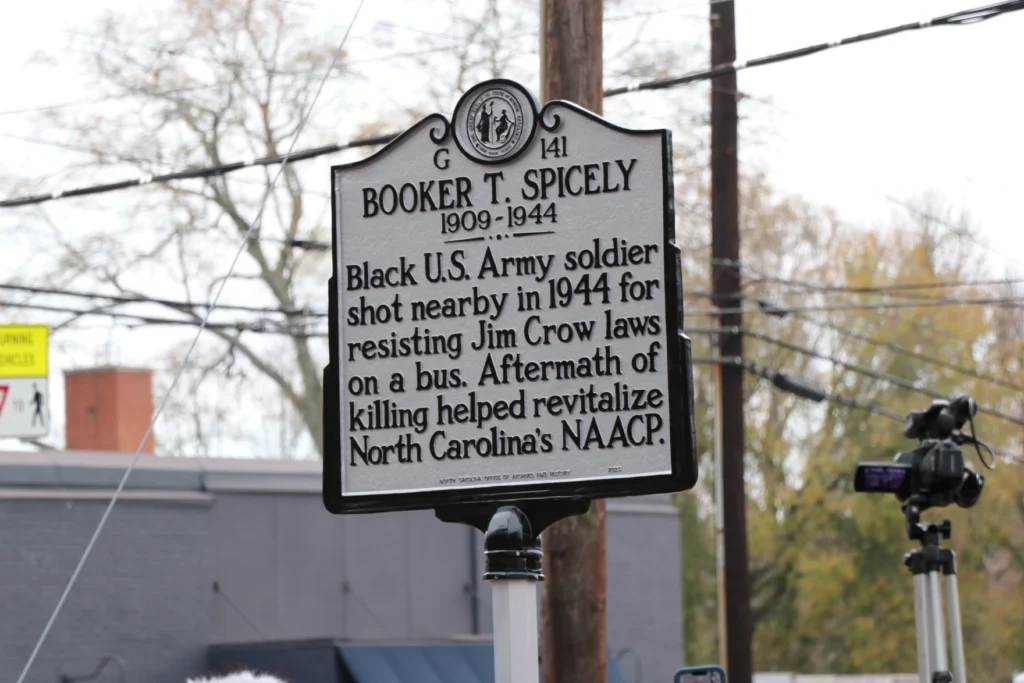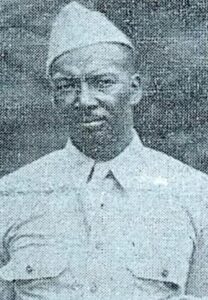
At CDPL, we believe that the past informs the present. That’s why we took on our ambitious Racist Roots project in 2020. It’s also the reason that we are now a sponsor of the Booker T. Spicely Committee.
You might have heard of the committee at the end of last year, when it successfully lobbied for a historic marker in recognition of Pfc. Spicely, a Black soldier who was shot to death by a Durham bus driver in 1944 because he resisted giving up his seat to a group of white soldiers.
In addition to shining light on a forgotten hero, the marker is also the first in NC to use the phrase “Jim Crow.” We hope it will not be the last, considering how fundamental Jim Crow was to North Carolina’s history and politics – as well as its death penalty.
On July 8, 1944, Pfc. Spicely was on his way to Camp Butner for Army training. Wearing his uniform, he was sitting in the next to last row when a group of white soldiers got on the bus and the driver told him to move to the last row. This was years before Rosa Parks’ protest that set off a bus boycott, but Spicely was part of a national civil rights movement called the Double V campaign, which encouraged soldiers to protest segregation and fight for democracy both at home and abroad.
Spicely protested that he was “just as good to stop a bullet” as a white soldier and then said, “I thought I was fighting this war for democracy.” Spicely ultimately changed seats, but when he got off the bus in Durham, the bus driver shot him twice in the chest with many witnesses watching. One bullet went through his dog tags. Spicely died from his injuries after being refused treatment at the whites-only Watts Hospital. By the time he made it to Duke Hospital, which treated Black people, it was too late to save him.
CDPL’s Of Counsel Attorney James Williams, who leads the Spicely Committee, summed it up eloquently: “Here’s this soldier in uniform who’s supporting this country’s war efforts, and he asks these reasonable and sensible questions. Am I not wearing the same uniform as those white soldiers? Do I not run the risk of stopping a bullet just like those white soldiers? Why are you treating us like this?”
The injustice was compounded when the bus driver went to trial for Spicely’s killing. An all-white jury deliberated just 28 minutes before acquitting him – a good reminder of why CDPL continues to fight against the exclusion of Black and Brown people from capital juries.
In addition to the marker, the committee helped to establish an annual scholarship in Pfc. Spicely’s name at NC Central University. It will also mark the 80th anniversary of Spicely’s death by presenting a one-act play about his life. CDPL will continue to stand behind the committee’s efforts to remember and right the injustices of the past.


